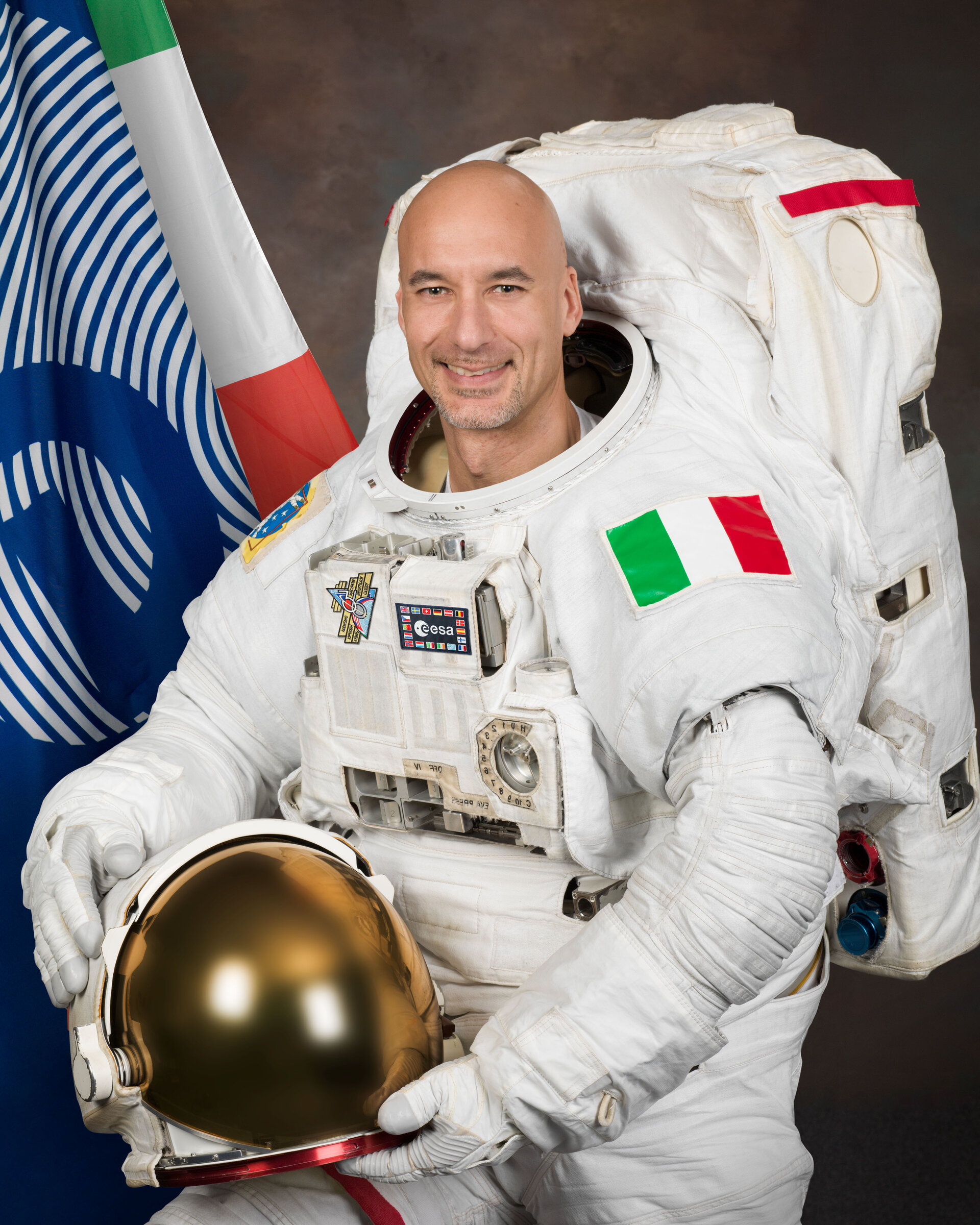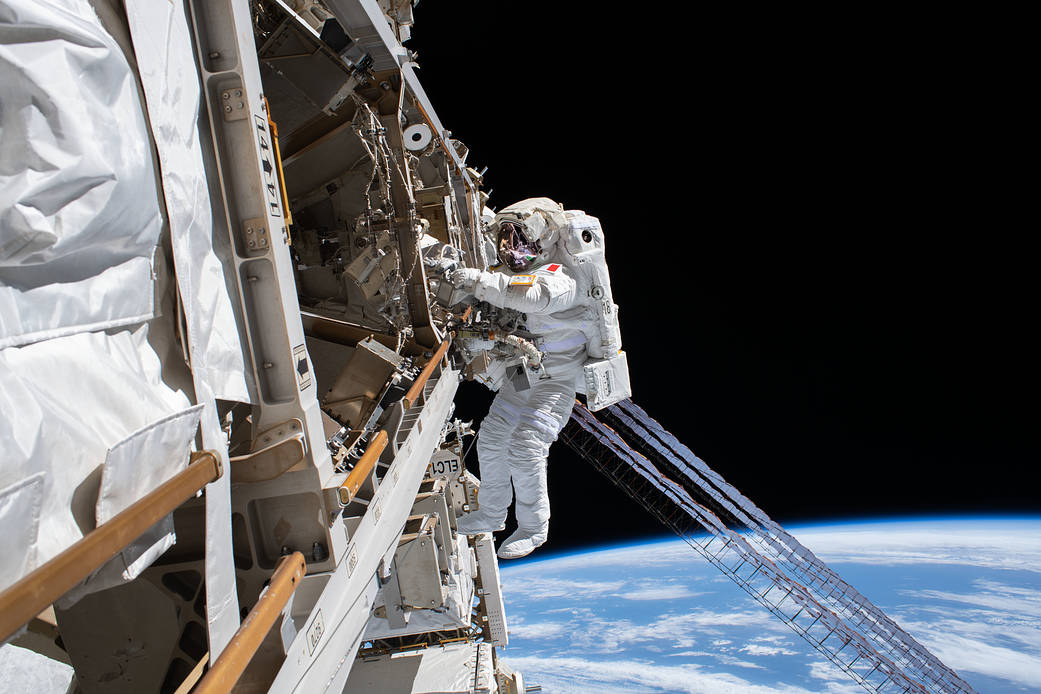
"If we can think about something, it is also possible"
Luca Parmitano is an Italian astronaut with the European Space Agency (ESA) and has spent over a year aboard the Internatinal Space Station (ISS). During his visit to Helsinki last week, Luca Parmitano met with SpaceFinland to discuss the ethics of spaceflight.
Many astronauts have reported the “overview effect”; a cognitive shift induced by seeing the Earth from outer space – some have even said that it would have changed their worldview on a fundamental level. Did you experience the overview effect as well?
Luca Parmitano: I have definitely felt the overview effect – it’s hard to put into words what it feels like. Seeing the Earth from space conveys a unique sense of its fragility. From the distance, the planet itself looks like a living organism: the wind, the motion of the clouds and the oceanic waves make it seem as if the Earth were breathing.
Did the experience have an impact on your ethical beliefs?
Becoming aware of the fragility of the Earth gave me a strong sense of responsibility. I don’t only want to ensure humanity’s future on Earth, but also want to protect other species, whose existence is threatened by our current lack of vision for a more sustainable future. The fact that humans are not visible from outer space gave me a unique perspective on humanity’s place on Earth.
Many astronauts are advocates for environmental concerns. Is it reconcilable to advocate for environmental concerns and support spaceflight?
I was quite concerned about the environmental impact of space flight myself. As I found out, the amount of fuel used on a launch to the ISS is comparable to the quantity of fuel stored in a gas station. In light of the benefits achieved by spaceflight – including improved climate change mitigation capabilities – this is an infinitesimal amount. Furthermore, spaceflight has a very low carbon footprint in comparison to other industries.
Which ethical concerns are associated with spaceflight?
A main ethical concern has to do with the research we do aboard the ISS. Some experiments raise valid ethical concerns: we have conducted tests on animals, some of which we had to euthanize in consequence. Astronauts are always given the option not to be involved in these experiments. However, I haven’t heard of anyone that has opted out. We try to look at the bigger picture and evaluate the experiments in view of the scientific progress they enable. The experiments involve research on genetics, osteoporosis, muscular dystrophy and cancer – personally, I believe that advances in these fields legitimate the experiments. And of course, we take every care possible to ensure that the animals are not suffering before, during or after the experiments.
Which values should guide humanity’s venture into space?
In general, I don’t like to speak in absolutes. Even ethics is elastic – it changes with time, age and society. However, it seems safe to say that science has an absolute value. Our thirst for knowledge distinguishes us from all other species on Earth. I feel very strongly about the science we do in space, as it is driven by questions about who we are and where we come from. Are we ever going to find a definitive answer? No! That would be boring. And yet, adding knowledge to some very fundamental questions still seems very valuable to me.
Why do we need space in our quest for these answers?
When it comes to science in space, we are talking about a very unique kind of science: it cannot be reproduced anywhere on Earth. On Earth, we can change the atmosphere, the pressure, the temperature – we can manipulate all kinds of conditions, but the experiments will always have an acceleration of 9.8 meters per second squared. Once you take the science to the orbital environment, it changes fundamentally: the ISS is in a microgravitational environment, where the effects of gravity become negligible. Performing experiments in space yields new results and gives rise to new questions. There are also some experiments which can only be done in space.
How has the scientific research conducted in space already transformed our understanding of the universe?
The Hubble Space Telescope, a cooperation between the European Space Agency and NASA, has fundamentally changed our perception of the universe. Now, we also have the James Webb Space Telescope – it has already given us some of the most spectacular and mind-bending images of the universe. Another example is the AMS, the Alpha Magnetic Spectrometer, which captures and identifies some of the universe’s oldest and rarest particles. The results have revolutionized some of our ideas about the formation of the universe.
Should humanity strive to become a multiplanetary civilization?
First of all, I want to emphasize that this is not the purpose of space agencies today – we are not looking for another planet for humanity to live on. We have one planet; it’s called Earth, and it is all we have and all we will have for a very long time. But Earth’s resources are finite. In outer space, however, resources abound. One day, I hope that humanity will be able to utilize these resources to improve life on Earth, for example by using them as energy sources. Right now, we are using the worst energy sources possible – fossil fuels are non-renewable and are polluting our planet.
And if, at some point, we would have the technology to terraform other planets – why not? However, I doubt whether a multiplanetary humanity will become an actual possibility within the next centuries.
What is your utopian vision for humanity’s future in space?
I love the notion of utopia as it situated at the interface between the possible and the impossible. I don't know which scenarios will eventually prove possible – I like to believe that if we can think about something, it is also possible. Whether something will be practical is a different question.
As mentioned before, one utopian scenario is that we would expand beyond our planet and start colonizing other space environments. To become a multiplanetary civilization, we would have to change our physiology at a genetic level – our bodies and minds are not made for spaceflight, we have evolved for life on Earth. However, I don’t rule out that we might one day be able to modify our DNA to make us better suited for spaceflight.

© NASA: Astronaut Luca Parmitano has already spent over a year in outer space and has completed six spacewalks during his time aboard the International Space Station. Parmitano carried out ESA's Volare and Beyond missions and was the first Italian and third European to take on the role of ISS commander.




